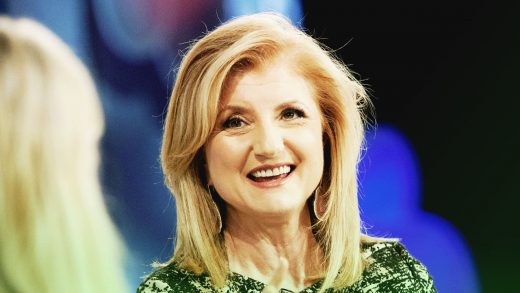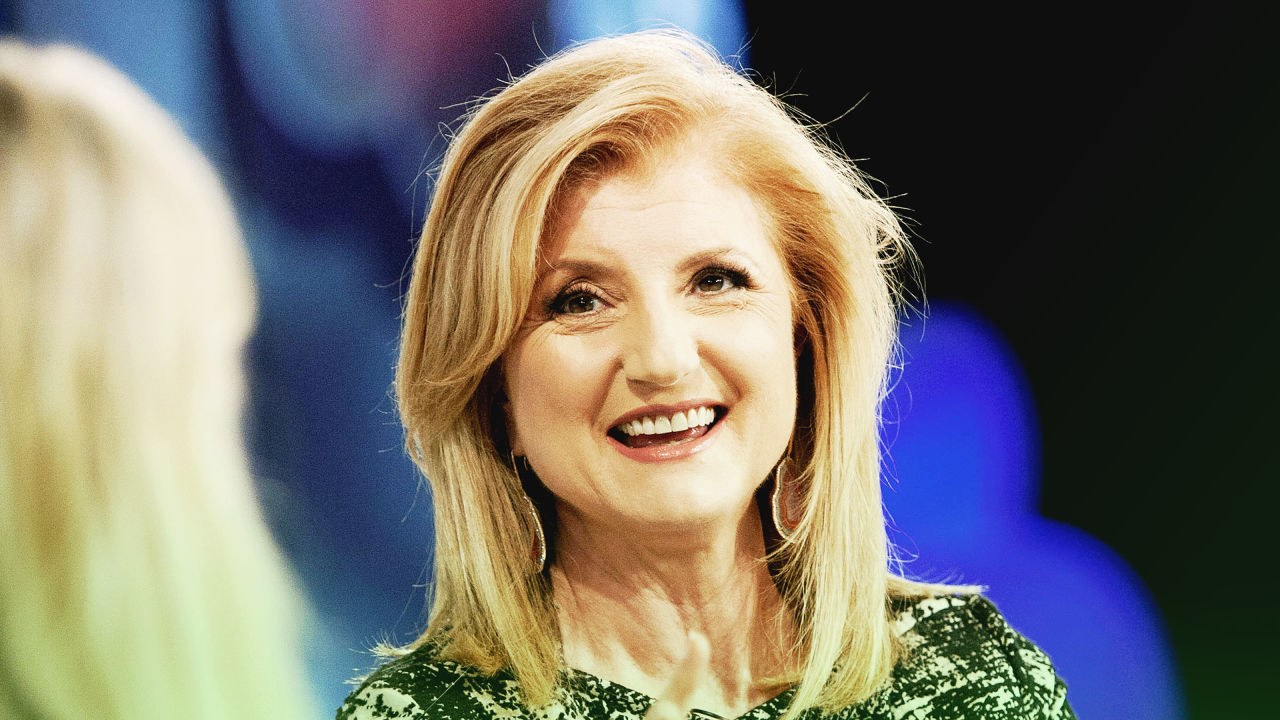Here’s Arianna Huffington’s Recipe For A Great Night Of Sleep
The sleep deprivation crisis is real.
Arianna Huffington has been on a crusade to educate the public on the importance of sleep ever since she collapsed from exhaustion in 2007.
“The impact on our health is dramatic,” says the publisher of the Huffington Post, who is also launching a new health and wellness media startup called Thrive. “We have all the data now that shows how it affects every aspect of our health.” This includes everything from a suppressed immune system (it might be why you’re always getting a cold), hypertension (less snooze means a harder time processing stress), and obesity (the sleepy crave bad carbs and sugars).
“The irony is that a lot of people forego sleep in the name of productivity,” she points out. “But in fact our productivity is reduced substantially when we’re sleep deprived.”
The Case For A Good Night’s Sleep
Indeed, research shows our cognitive functions are impaired, so we are more likely to overreact. Our emotional intelligence is degraded, so we are more likely to be irritable—and there’s even research connecting sleep deprivation to mental health problems and depression.
“Yet the myth persists that we can do our jobs just as well on four or five or six hours of sleep as we can on seven or eight,” she stresses, calling it a modern delusion.
Your tech addiction is partially to blame.
In her new book The Sleep Revolution, Huffington traces sleep deprivation back to the Industrial Revolution, when humanity began “devaluing human beings and started depending on machines.” Keeping people working at all hours became normal, and now with the ubiquity of technology, it’s only become harder to separate from the office.
“It’s getting worse and worse because of our addiction to devices,” says Huffington. “Now with the digital revolution, we all have a hard time disconnecting from our technology and going to sleep.” That’s why many of us wake up in the middle of the night, reaching for the phone to immediately strike up a texting conversation or check the news.
According to a recent study, 71% of Americans sleep next to their smartphones. “It makes it much harder to go back to sleep,” Huffington warns, since the blue light emitted acts as a stimulant. “[Our homes] are littered with beeping, vibrating, flashing screens.”
And it affects more than just our personal health. It affects the economy.
A loss of sleep not only impairs employees’ moods and diet, but also hinders productivity, creativity, and decision-making. In many fields, such as medicine or transport, sleep deprivation can mean life or death, but for most others, it generally means a subpar performance.
And a poor performance does nothing to help a company’s bottom line. Consider this: In the last year, the U.S. economy suffered more than 11 days in lost employee productivity, the equivalent of roughly $2,280. In total, that marks more than $63 billion due to absenteeism or presenteeism, which accounts for employees who are physically at work but mentally elsewhere. We are not a nation that can afford to waste more employee brain power to sleep deprivation.
The Sleep Revolution Is Upon Us
But there’s hope: We are living in “the golden age of sleep science.”
“The good news is that there’s a much greater awareness about the risks of sleep deprivation and the importance of sleep,” says Huffington, who just completed a tour about sleep across more than 300 U.S. college campuses. “We are seeing a huge response from millennials and people in the workplace.”
She credits a long list of multiple factors that are contributing to our increased awareness of the issue, specifically science that is taking the field more seriously. New findings repeatedly attest to sleep’s benefits, specifically how it maintains our brain functionality and clears toxic waste proteins that accumulate between brain cells during one’s day. Huffington cites Maiken Nedergaard of the University of Rochester, who likens the mechanism to a dishwasher.
“Just as we wouldn’t eat off dirty dishes, why would we settle for going through the day with anything less than the full power and potential of our brains?” asks Huffington.
Add to this trove of research the popularity of sleep-tracking wearables, tech startups responding to consumer interest in sleep devices, or athletes publicly discussing how sleep improves their game. “Even that increases awareness about the performance-enhancing benefits of sleep,” Huffington says.
Employees are taking note—and our work culture is changing. Huffington recently found herself shocked when, while on a panel filled with other media executives, one declared that a chief of staff is expected to be available 24/7. Her reply? “I expect that in two years, you will not be able to make that statement in public.”
While there are still those who boast and promote workplace exhaustion, Huffington sees the tide shifting. “Like in any field of transition, you have multiple behaviors coexisting. You have the early adopters, who talk openly about needing eight hours, and then you have the other extreme, executives who brag about sleep exhaustion.”
But the sleep revolution is coming, starting with nap rooms, more flexible work hours, and business leaders who want to retain employees in a healthier environment.
As Huffigton sees it, sleep deprivation is “the new smoking.” It will soon be viewed by employers as a harm instead of a “badge of honor.” Like smoking, it took time for society to catch up on the science of how tobacco was killing us. “Now,” she says, “the perception is catching up with the science.”
She recalls one particular discussion with Amazon boss Jeff Bezos, who recently told her he now demands eight hours of rest. As he relayed to her, “If I make half of the decisions, but they’re 5% better, that’s better for Amazon.”
How To Sleep Like Arianna
There are steps you can take to get better sleep.
“People want an easy fix when they can’t sleep, like a pill,” explains Huffington, who doesn’t recommend pharmaceutical sleep aids. They often “lead to a lot of additional health problems.” Instead, the publisher prefers a more natural approach to the bedtime routine, stressing the importance of a dedicated transition to sleep.
“I love the idea of rekindling the romance with sleep,” she says.
Every night, she reserves a specific amount of time to wind down into her routine. First, she turns off all her devices 30 minutes prior to bedtime and escorts them outside of her bedroom. Next, she takes a hot bath, which “washes away the day, slows down my brain, and winds down my body.” She opts for dedicated pajamas instead of what she used to wear to bed—gym clothes—and only reads physical books that “have nothing to do with work” when she’s under the covers. These tend to be poetry, philosophy, and fictional books.
To top it all off, Huffington takes the time to write down three things she’s thankful for that day, giving the day a closing scene. Ending one’s day with positive thinking makes for better sleep, she says, and helps cut down on anxious dreams or midnight wakes.
But above all, it harkens back to her original message: “We need to make sleep something that’s welcoming.”
We put sleep research to the test in a sleep-deprivation obstacle course:
Fast Company , Read Full Story
(42)



